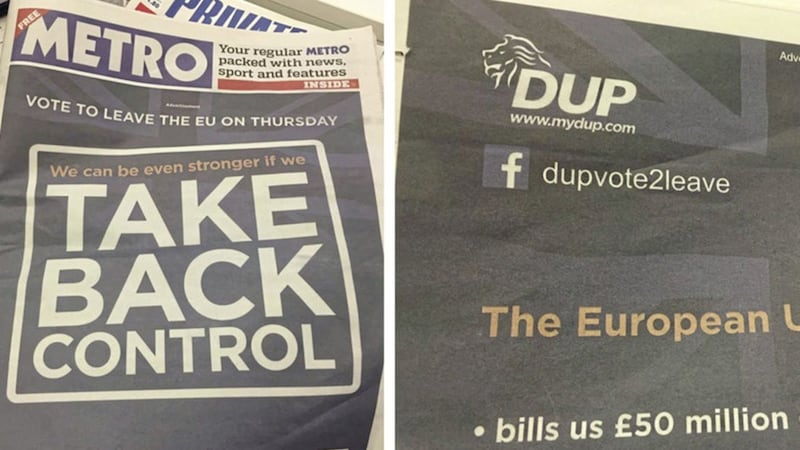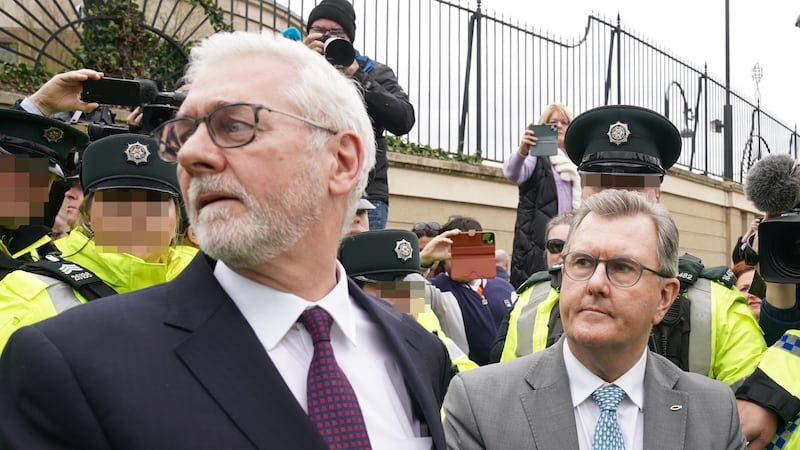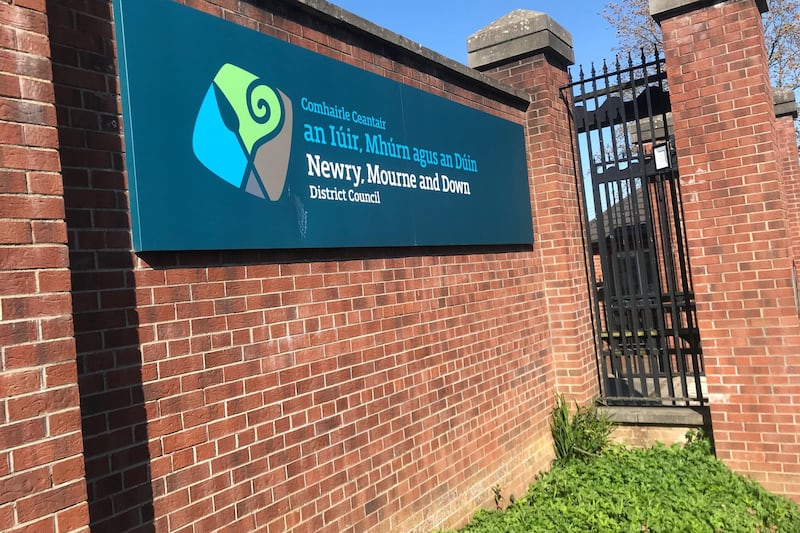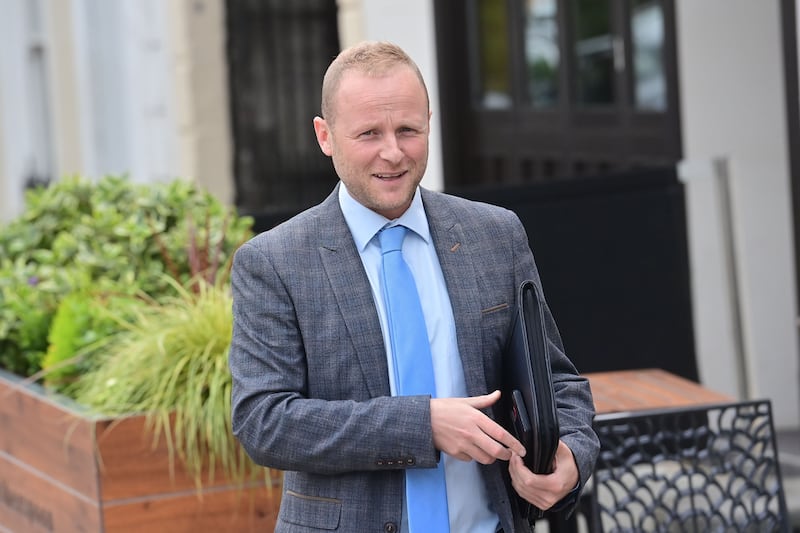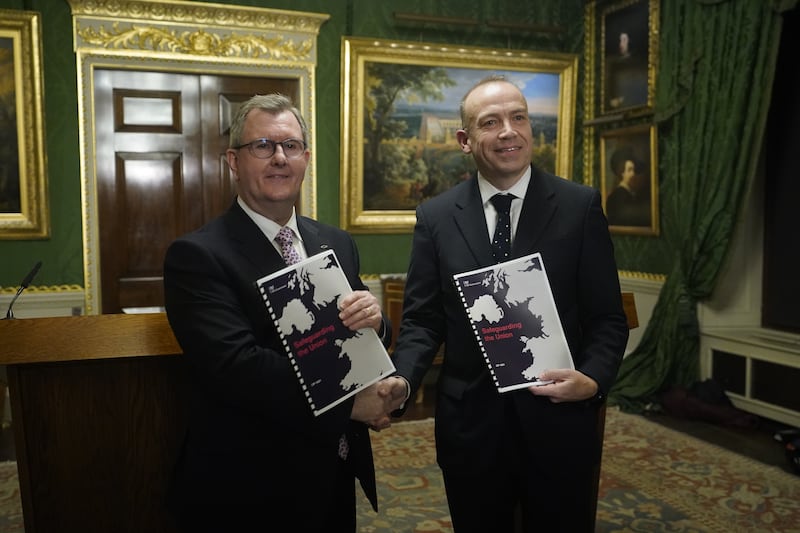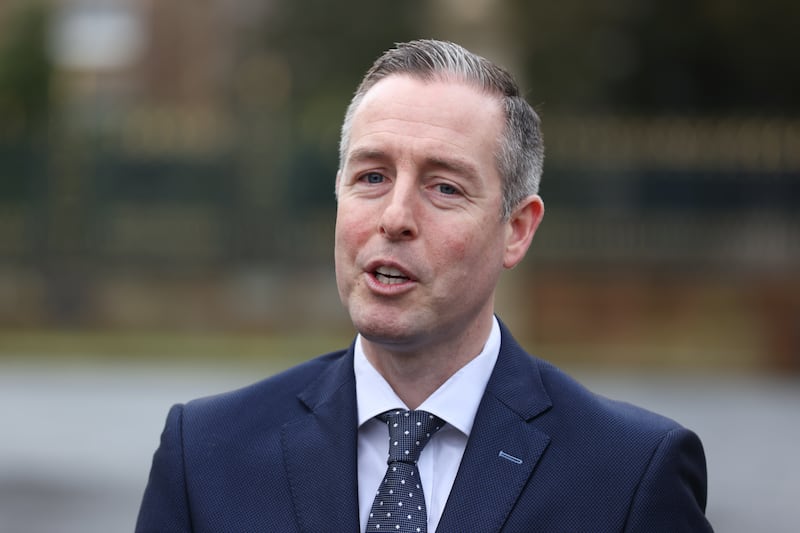Senior Electoral Commission staff privately expressed concerns that the DUP had broken UK election law before choosing not to probe the party's 'dark money' donation, according to watchdog's internal documents.
In the wake of June's BBC Spotlight investigation into the DUP's donation from the shadowy Constitutional Research Council (CRC), the Electoral Commission's head of regulation Louise Edwards said remarks aired in the broadcast by East Derry MP Gregory Campbell were "sufficient" to warrant concern.
The internal communications, revealed to campaign group openDemcracy through a freedom of information request, also include claims that the programme had unearthed "new information" which suggested the DUP had been working together with other Leave campaigns in contravention of electoral law.
When Mr Campbell was asked about the source of the controversial £435,000 donation from CRC to the DUP’s 2016 Brexit campaign, he told a reporter : “How would I be or anybody in our party be expected to know who the individuals are that are involved in the organisation?”
The remark is significant because as DUP treasurer, the East Derry MP is required by law to undertake due diligence and establish origin of the funds.
A separate, handwritten note, labelled "Ann Watt" (head of the Electoral Commission in Northern Ireland) said: "Gregory Campbell did not know who donor was or why it mattered".
The Electoral Commission announced in August that it did “not have grounds” to probe the CRC donation, which paid for wraparound adverts in the Metro newspaper.
The watchdog's head of regulation wrote to Mr Campbell after the Spotlight broadcast pointing out that the DUP treasurer was required to ensure that all donations are permissible.
The DUP MP replied voicing “disappointment” that the Electoral Commission had written to him after a “biased BBC output”. Mr Campbell said his interview had been used “out of context” and “in an attempt to convey an incorrect impression” that he was not familiar with electoral law.
The documents also show that the regulator placed the onus on the BBC to provide it with information.
On 27 June, while discussing a media query from The Irish News, a member of staff at Electoral Commission said the regulator should tell the press that “we have asked the BBC to provide us with copies of any evidence it holds... This would put the pressure (rightly) on the BBC to provide us, the regulator, with the evidence".
It is understood a senior BBC journalist provided the watchdog with a lengthy letter outlining the programme's main claims and how the regulator could independently verify the allegations.
Jolyon Maugham, the barrister and director of the Good Law Project, who plans a judicial review against the Electoral Commission if it does not investigate the DUP's links with CRC, said Mr Campbell's remarks were "the clearest contravention imaginable of electoral law".
"If the UK's democracy is a drunk driver hurtling towards a cliff edge the Electoral Commission is the spouse too frightened to speak up," he told The Irish News last night.
"The problem is, that is the exact and vital job parliament has entrusted to it."
The Electoral Commission said it had withheld some documents relating to its assessment process from openDemocarcy, as releasing them could hinder future investigations.
"As a result, the details of our decision making process relating to this assessment have not been shared," an Electoral Commission spokesman said.
Alliance MLA Stewart Dickson said he backed the Good Law Project's campaign for a judicial review.
"Openness and transparency are vitally important in public life, particularly when it comes to the funding of political parties and their election and referendum campaigns," he said.
